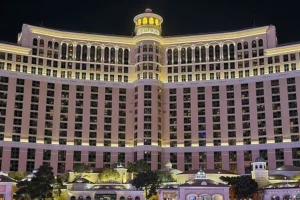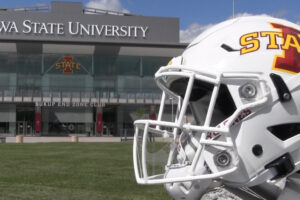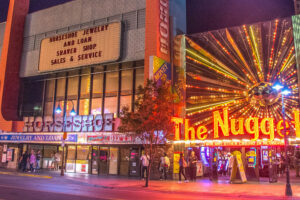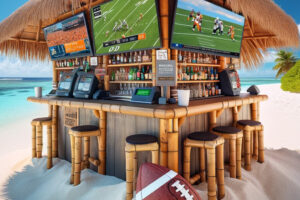Alaskan Ferries Should Have Slots, Says State Senator
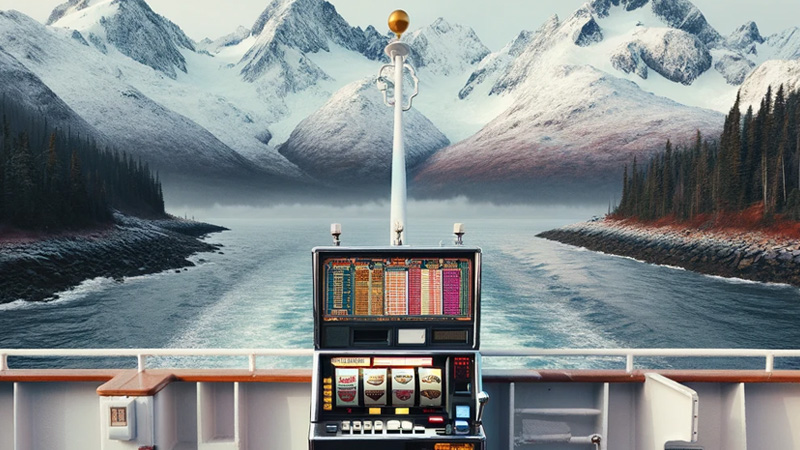
In one of the more interesting U.S. gambling proposals of 2024 to date, a Republican legislator from Matanuska-Susitna Borough, Alaska, has proposed putting slot machines on state ferry service boats.
Rep. Jesse Sumner (R-Wasilla) outlined his vision for House Bill 197 in its first hearing this week.
Sumner represents Wasilla, population 9,054. He says that casino style slots could help deal with the public ferry services’ growing annual budget deficit. The service saw a $43 million budget cut in 2019, which it has yet to fully recover from.
State aides working under Sumner suggested such gambling in Alaska could prove lucrative, saying the market could offer $20 million in taxes a year.
However, other lawmakers were opposed. Not for the often-cited anti-gambling arguments of increased crime, stress on public services, and problem gambling. The main arguments against ferry-borne slots from legislators were that various independent Alaskan lottery providers may be impacted, and that aging ferries might not have the electrical capacity for the machines.
Floating Workaround
As well as the economic arguments, Sumner suggested implementing the change could be expedited by taking advantage of an existing law.
Cruise ships often operate slots while in international waters, so on a popular cruise destination, such ships are also allowed to open their casinos in Alaskan waters under a revenue sharing agreement. But only if three miles offshore, preventing local operators from following suit.
Sumner says some ferry services already go more than three miles from shore, and others can be extended so they do.
Sumner’s plan envisions that some longer ferry services might become riverboat gambling style destinations for tourists.
If Alaska did introduce such a thing, it would come at a time when most other states have been slowly converting their riverboat venues to permanent land-based casinos in an era of increased legalization.
The time of mobile gambling lounges on cruising riverboats is well and truly over in that sense. It has been since 2005, when many of the few remaining true Mississippi riverboat casinos were destroyed by Hurricane Katrina.
99% of riverboat casinos are now only on the river in a nominal sense, being permanently moored, or more often since the ’90s, buildings built to float on water channeled in from the nearby river.
The list of casinos in Illinois lost two old-school riverboat casinos for good in 2023, as Penn Entertainment’s Hollywood Casinos in Aurora and Joliet began their move inland.
Nevertheless, these “riverboat” gambling operations still bring in good revenues in other states, such as casinos in Louisiana and Missouri. But they are very far from being gaming installations on moving public ferries, as envisioned by Sumner.
Estimates and Energy
Given all that, it’s interesting that various local Alaskan media outlets reported that one aide to Sumner said people would be attracted to the ferries just to gamble.
“Some people might take the ferry just to gamble, just as they do in the Lower 48,” said Cody Rice, who also calculated the $20 million figure for potential tax income.
A bit of digging only really reveals one similar proposal in recent times, which didn’t go down well, and it wasn’t even in the U.S. In 2015, a Canadian lawmaker recommended the British Columbia Lottery install slot machines on BC ferries routes.
However, a Canadian Transportation Ministry study found that such a venture would actually lose some CA$240,000 ($179,000) a year if implemented, due to costs of upkeep, security, and staffing. The proposal was dropped shortly after.
Lawmakers in Alaska also questioned the implementation of this new ferry slot machine project.
Opponents said that many ferry service ships dated back to the 1960s, and might not have the power capacity for modern slots. Modernizing the fleet would also up costs substantially, and could include getting approvals from the U.S. Coast Guard.
Some also noted that the current scarcity of routes that only go out three miles was not factored into the $20 million tax estimate.
Finally — and this one will be a familiar gambling argument to those in the lower 48 — opposed lawmakers said that Alaskan native tribes, which operate pull tab style lottery games in the state, would most probably band together to oppose the idea.
However, Sumner’s camp recounted that the boat-based slots gambling was already going on, just on cruises, and that the state ferry service was vitally in need of funding.
“It will be a win for this legislature, a win for our ferry system, and most importantly, a win for Alaska,” said Joseph Lurtsema, an aide to Sumner.





